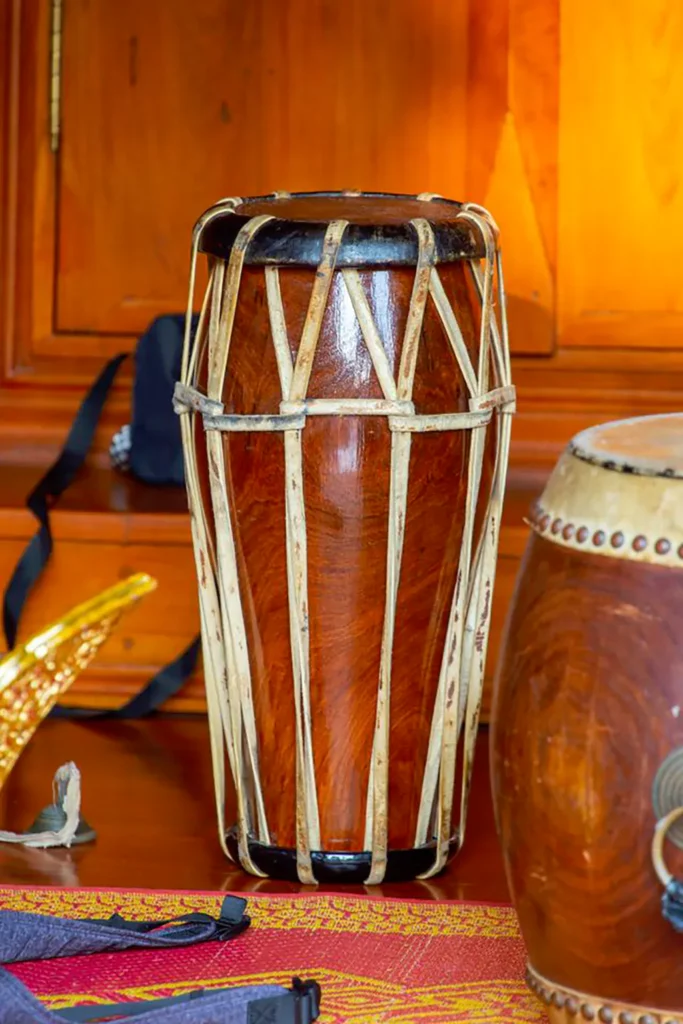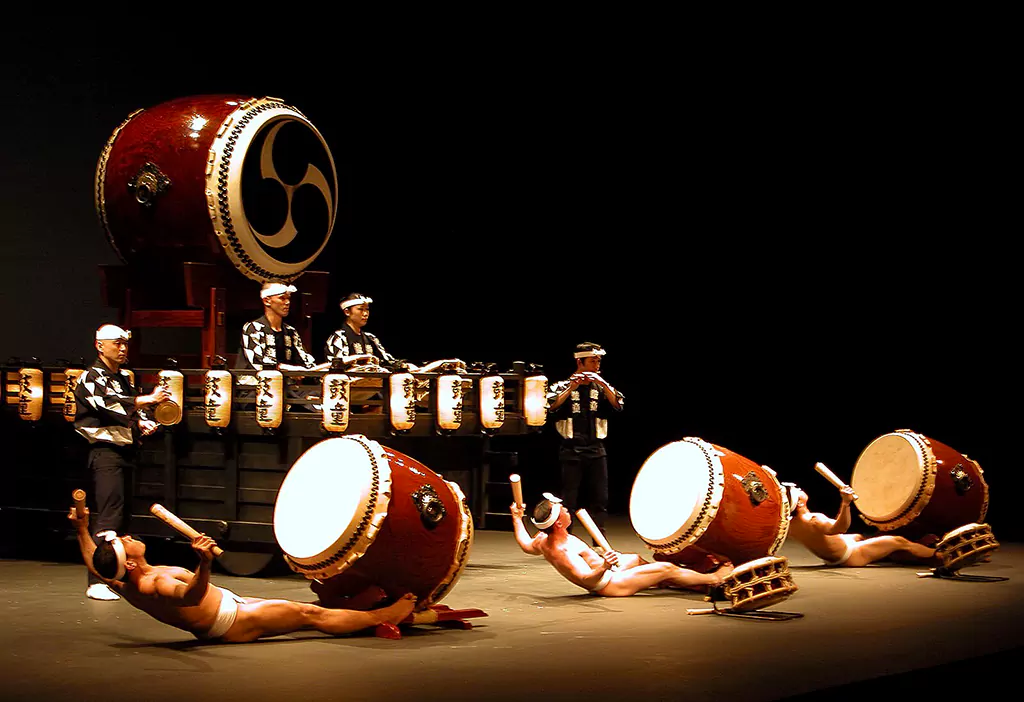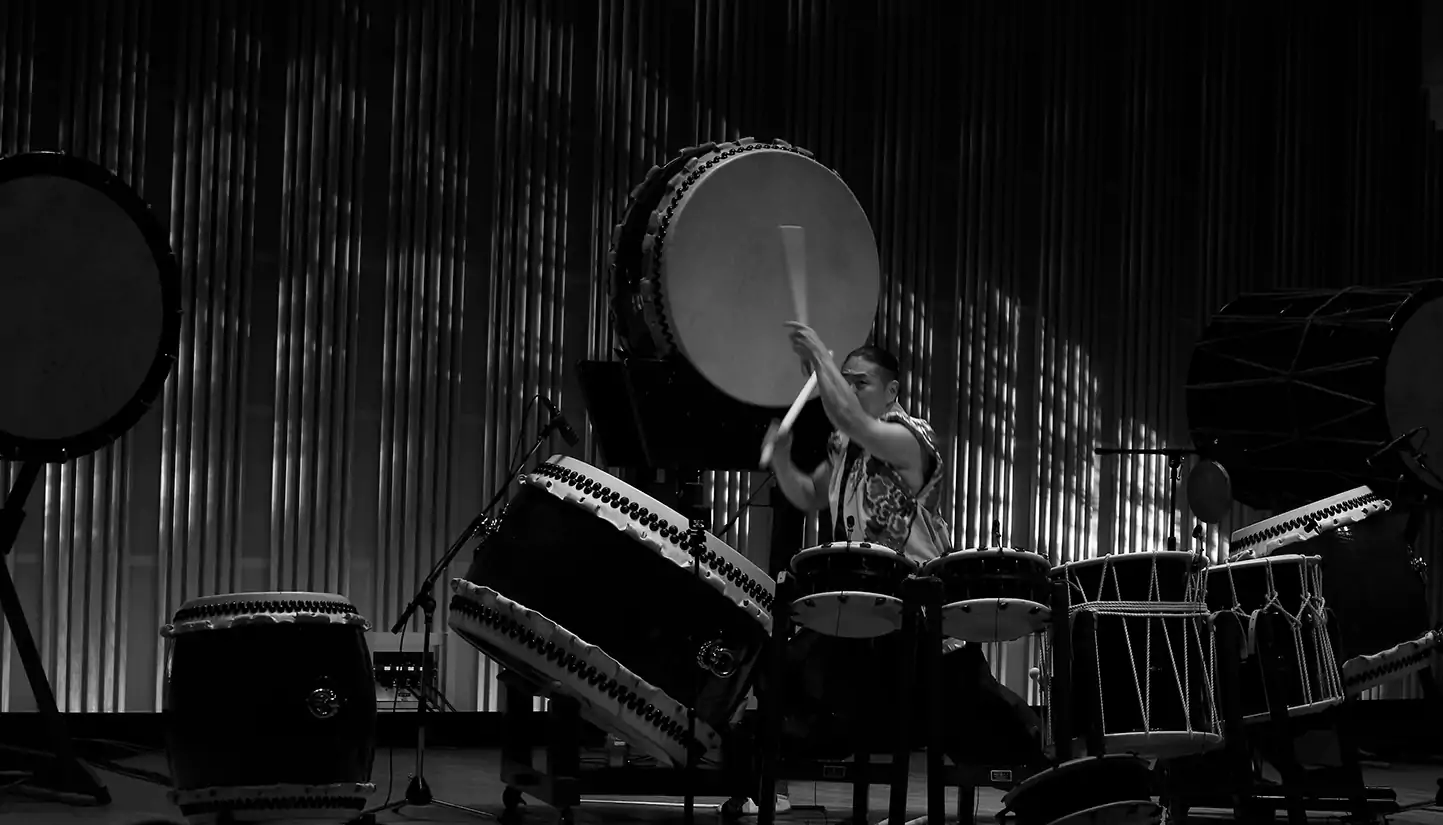The genealogy of the taiko drum: one thousand years permeated by acoustic codes.
The Taiko drum TD-001, built in the Nara era, is kept in the musical instrument library of the Tokyo National Museum and is still in a playable state. It gives one very important point that these 8th-century instruments: the type difference of Taiko is really just a never ending kettle boiling away the limits of human sounds, acoustics, and cultural reactions. Sounds of different types of Taiko Drums can differe by 30dB in sound energy distribution of spectrum analysis, this is the physical basis of their functional distinction proven by modern sequence proffessor.
Classified of shape
The scientific classification system helps the buyer in reaching directly what he is looking for.

1. The rope-twisted Taiko drum best choice for stage performance considering the adjustable tension of the rope.
| Classification Type | Segment Type | Acoustic Type |
| Drum cavity shape | Long-body / barrel / dish | Resonance frequency difference ±15% |
| Drum head fixing method | Nail / Rope / Screw | Tension adjustment range ± 20kg/cm² |
| Playing position | Stand-up / Seated / Portable | Sound pressure level difference ± 12dB |
| Cultural attributes | Shinto / Buddhism / Folklore | Overtone structure difference 40% |
Acoustic characteristics and functional adjustment: Core type details
2. Miya-daiko
As a standard shrine, Miya-daiko’s acoustic design embedding with faith codes
Use beech wood of more than 100 years of tree age
Triple tanned bull leather, thickness 1.5mm±0.1
Acoustic parameters: base frequency 65Hz±5, simulated seismic wave frequency
Cultural regulations: engrave the drum body with 16-petal chrysanthemum patterns
In 2024, it was confirmed that the 63Hz low frequency of the Miya-daiko could resonate with the main temple building of Ise Shrine. The design of the sound field with wrestling this “man-instrument-god” trinity would improve the sacrificial effect to 40%.

Applicable scenarios:
Shinto Festival (New Year Festival, Harvest Festival)
Cultural heritage restoration projects
Research on traditional architectural acoustics
3. Nagadō-daiko: a sound wave blade that pierces time and space
As a symbol of modern taiko performance, the physical parameters of Nagadō-daiko should strictly keep its stage dominance at:
– Drum length to diameter ratio is kept at 1.25 ~ 1.30 (golden ratio)
– Material innovation
– To be remarkably frequency response 80Hz-5kHz wideband

Survey results from the renowned Kodo group indicate that the Nagadō-daiko type has a sound wave penetration 1.7 times that of quasi-Nagadō-daiko type, which is particularly well suited for open-air performances.
Relevant Uses:
Performances by taiko groups
Creation of modern music fusion
Large-scale celebrations like an opening ceremony
4. Kodo Taiko: A wizard in the dynamic sound field
With pitch adjustability, the most versatile type of taiko:
Features: Removable drum; adjustable ±15cm
Framework Tension System: 64 adjustment ropes serving as a tension matrix
Pitch accuracy: Pro models provide fine-tuning within a range of ±3 cents
Weight control: The aviation aluminum version is only 8 kg

Experimental acoustics from the NHK Symphony Orchestra proved that the taiko could switch pitch smoothly within 0.5 seconds in performance; an advantage fixed pitch taiko cannot match.
Applications Examples:
– Improvisation Workshop
– Film Soundtrack Recording
– Interactive New Media Art
Field-oriented selection guide: accurate matching of parameters to scenes
As per the guidelines for education in Japanese musical instruments provided by the Ministry of Education, Culture, Sports, Science, and Technology of Japan, the following are conditions for teaching drums:
| Parameters | Primary school standard | Secondary school standard |
| Drum diameter | 50cm ± 5 | 60cm ± 5 |
| Drumstick weight | 180g ± 10 | 220g ± 10 |
| Maximum sound pressure | ≤100dB | ≤110dB |
| Safety design | Anti-tilt device | Adjustable height stand |
design stability base / Anti-leakage / Adjustable height
Some believe that simplifying the teaching of taiko drumming could help beginners learn the instrument more easily. But for the professionals, the complexity accruing in most traditions is not redundant—it serves a purpose so integral that it can’t be reduced without loss to the art’s integrity. As one of the world’s premier innovators of taiko, JINLEI maintains percussive standards that uphold the taiko culture to be dynamic in our ever-changing world while honoring not only the ancestral craftsmanship but also honoring ancestry by pushing taiko culture forward in our dynamic, ever-changing world.
Decision tree for When to buy drums for performancesSelection system of professional sniffing teams:Venue size → What sound pressure do you need500-person theater: 110-120dBOpen-air music festival: 125dB+Music type → Choose the type of frequency response
Boosts low frequencies between 80-200Hz, a quick version of the expansion of the frequency range of traditional repertoire.
Here’s what Instagram users say about JINLEI Taiko:

Click here to view @noriakagi’s original post on Instagram
Future: The types of taiko drum through technological reconstruction
In summary, you can take part in the cross-border revolution of electronic taiko drums.
Breakthrough Technology of Yamaha DTX series:
Drumhead with multi-sensing layered ability: able to recognize 128 different strikes
AI tone modeling: simulating the sound pattern of antique taiko drums
Wireless networking: able to control 32 drums in synchronization
It has been used by Grammy Award winners to replicate the sound field from Heian sacrifices with a historical source restoration degree of 91%.
Bioengineered materials for drumheads
Recent Achievements of the MIT Media Lab
Gene-edited cowhide: Control strengthening collagen architecture
Mycelium cultured drum shell: Self-heal hairline cracks
Coating: Take in CO₂ to create resonance enhancement
As proved by test data, such a biological taiko drum has 40% sound cognitive stability improvement, with 65% less maintenance cost.
Global Implementation Model: Ending with Choice Art Height
Case Study: Cirque du Soleil’s “Mystère”
Type combination: 3 long-body taiko drums + 6 barrel taiko drums
Technical innovation 360-degree hanging drum set
Acoustic effect will produce a three-dimensional surround “drum maze
Market feedback This scene has become the peak segment of the show ratings
View the sound map of civilization in the score of the drum
Choosing the type of taiko drum you want is just a reading of the acoustic culture of humankind. As fingers run over the wood grain of various drum shells, and as drumsticks beat out against different frequency responses, users are taking part in a chat that spans over thousands of years. In a world where sounds are just files, the art of sound then springs from the choice of which temple to build within, and this is the music of the taiko — the deep sonic thankfulness hidden in the reveal of the physical of its smelly living parameters.



